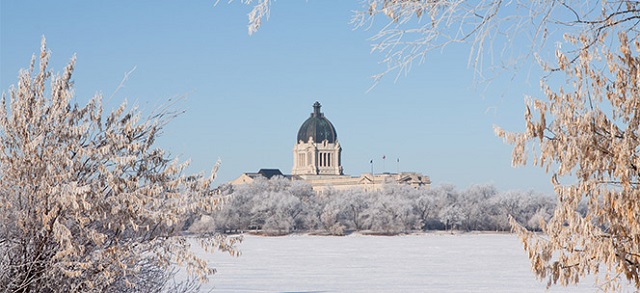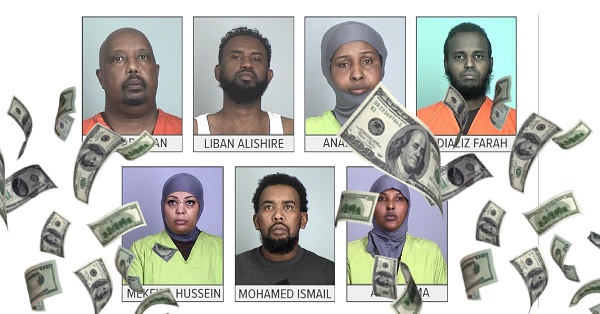Opinion
Feds facing the consequences of the costly carbon tax

From the Canadian Taxpayers Federation
Author: Gage Haubrich
Ottawa unveiled an unorthodox carbon tax communications strategy in Saskatchewan: threats.
Saskatchewan minister responsible for SaskEnergy, Dustin Duncan, recently announced that the Saskatchewan government will not be sending the federal government money to cover its refusal to charge Saskatchewanians the carbon tax on home heating.
In October, Saskatchewan announced that it would stop collecting the federal carbon tax on home heating in the province. The provincial government estimates this will save the average family who uses natural gas to heat their home $400 this year. That’s enough to pay for a couple trips to the grocery store, and with the current prices at the store, families need all the relief they can get.
In response, federal Minister of Energy and Natural Resources Jonathan Wilkinson shot back at Saskatchewan, announcing that because of this decision, Saskatchewanians will no longer be receiving the federal government’s carbon tax rebate.
Premier Scott Moe then pointed out the absurdity of the feds by highlighting that Saskatchewanians are still paying the carbon tax on gas, diesel and propane.
This whole mess started because Prime Minister Justin Trudeau backpedalled on his carbon tax and decided take it off heating oil. It’s a fuel primarily used in Atlantic Canada and used by almost zero Saskatchewanians.
Despite the exemption in Atlantic Canada being very similar to Premier Scott Moe’s plan in Saskatchewan, Atlantic Canadians are still on track to receive carbon tax rebates. And Quebec, which pays a lower carbon tax than the rest of the country, hasn’t faced the wrath of the federal government either.
Ottawa instead decided to pick a fight with Saskatchewan. It’s fight that won’t win them any favours in the province. At this point, it’s a good bet the Winnipeg Blue Bombers are more popular in Saskatchewan than the Liberals.
But not do outdo even himself, Wilkinson also added, “The rebate actually provides more money for most families in Saskatchewan.”
If only that were true.
Currently, the carbon tax costs 14 cents per litre of gasoline and will cost the average Saskatchewan family $410 this year, according to the Parliamentary Budget Officer.
Oh, and that’s including the rebates that Wilkinson is currently threatening to withhold.
Along with the carbon tax, Ottawa also charges a 10 cents per litre federal tax gas tax and then GST on top of the whole price of the gas, including the carbon tax. That means you are paying about two cents per litre in tax-on-tax in GST every time you fill up your vehicle.
And it’s going to get worse because the federal government plans to keep hiking up the carbon tax.
Come April 1, the carbon tax cost jumps to 17 cents per litre. By 2030, it will be 37 cents per litre and cost the average Saskatchewan household $1,723 per year.
And since almost everything we buy is delivered by a truck and then stored inside a store, the costs to transport and sell those items also goes up with the carbon tax.
After the announcement of the carbon tax heating oil exemption, five premiers, including Moe, wrote to Trudeau demanding that he take the carbon tax off all forms of home heating. It’s good to see premiers across the country take a stand, but Moe is the only one taking real action.
Instead of resorting to threats, maybe Ottawa should take the hint and scrap the carbon tax.
Censorship Industrial Complex
US Under Secretary of State Slams UK and EU Over Online Speech Regulation, Announces Release of Files on Past Censorship Efforts

Sarah Rogers’ comments draw a new line in the sand between America’s First Amendment and Europe’s tightening grip on online speech.
|
|
Business
“Magnitude cannot be overstated”: Minnesota aid scam may reach $9 billion

Federal prosecutors say Minnesota’s exploding social-services fraud scandal may now rival nearly the entire economy of Somalia, with as much as $9 billion allegedly stolen from taxpayer-funded programs in what authorities describe as industrial-scale abuse that unfolded largely under the watch of Democrat Gov. Tim Walz. The staggering new estimate is almost nine times higher than the roughly $1 billion figure previously suspected and amounts to about half of the $18 billion in federal funds routed through Minnesota-run social-services programs since 2018, according to prosecutors. “The magnitude cannot be overstated,” First Assistant U.S. Attorney Joe Thompson said Thursday, stressing that investigators are still uncovering massive schemes. “This is not a handful of bad actors. It’s staggering, industrial-scale fraud. Every day we look under a rock and find another $50 million fraud operation.”
Authorities say the alleged theft went far beyond routine overbilling. Dozens of defendants — the vast majority tied to Minnesota’s Somali community — are accused of creating sham businesses and nonprofits that claimed to provide housing assistance, food aid, or health-care services that never existed, then billing state programs backed by federal dollars. Thompson said the opportunity became so lucrative it attracted what he called “fraud tourism,” with out-of-state operators traveling to Minnesota to cash in. Charges announced Thursday against six more people bring the total number of defendants to 92.
BREAKING: First Assistant U.S. Attorney Joe Thompson revealed that 14 state Medicaid programs have cost Minnesota $18 billion since 2018, including more than $3.5 billion in 2024 alone.
Thompson stated, "Now, I'm sure everyone is wondering how much of this $18 billion was… pic.twitter.com/hCNDBuCTYH
— FOX 9 (@FOX9) December 18, 2025
Among the newly charged are Anthony Waddell Jefferson, 37, and Lester Brown, 53, who prosecutors say traveled from Philadelphia to Minnesota after spotting what they believed was easy money in the state’s housing assistance system. The pair allegedly embedded themselves in shelters and affordable-housing networks to pose as legitimate providers, then recruited relatives and associates to fabricate client notes. Prosecutors say they submitted about $3.5 million in false claims to the state’s Housing Stability Services Program for roughly 230 supposed clients.
Other cases show how deeply the alleged fraud penetrated Minnesota’s health-care programs. Abdinajib Hassan Yussuf, 27, is accused of setting up a bogus autism therapy nonprofit that paid parents to enroll children regardless of diagnosis, then billed the state for services never delivered, netting roughly $6 million. Another defendant, Asha Farhan Hassan, 28, allegedly participated in a separate autism scheme that generated $14 million in fraudulent reimbursements, while also pocketing nearly $500,000 through the notorious Feeding Our Future food-aid scandal. “Roughly two dozen Feeding Our Future defendants were getting money from autism clinics,” Thompson said. “That’s how we learned about the autism fraud.”
The broader scandal began to unravel in 2022 when Feeding Our Future collapsed under federal investigation, but prosecutors say only in recent months has the true scope of the alleged theft come into focus. Investigators allege large sums were wired overseas or spent on luxury vehicles and other high-end purchases. The revelations have fueled political fallout in Minnesota and prompted renewed federal scrutiny of immigration-linked fraud as well as criticism of state oversight failures. Walz, who is seeking re-election in 2026 after serving as Kamala Harris’ running mate in 2024, defended his administration Thursday, saying, “We will not tolerate fraud, and we will continue to work with federal partners to ensure fraud is stopped and fraudsters are caught.” Prosecutors, however, made clear the investigation is far from finished — and warned the final tally could climb even higher.
-

 International20 hours ago
International20 hours agoOttawa is still dodging the China interference threat
-

 Business18 hours ago
Business18 hours agoThere’s No Bias at CBC News, You Say? Well, OK…
-

 Automotive17 hours ago
Automotive17 hours agoCanada’s EV gamble is starting to backfire
-

 International19 hours ago
International19 hours ago2025: The Year The Narrative Changed
-

 Fraser Institute2 days ago
Fraser Institute2 days agoCarney government sowing seeds for corruption in Ottawa
-

 Business1 day ago
Business1 day agoResidents in economically free states reap the rewards
-

 Alberta1 day ago
Alberta1 day agoAlberta project would be “the biggest carbon capture and storage project in the world”
-

 Alberta2 days ago
Alberta2 days agoAlberta Next Panel calls for less Ottawa—and it could pay off







